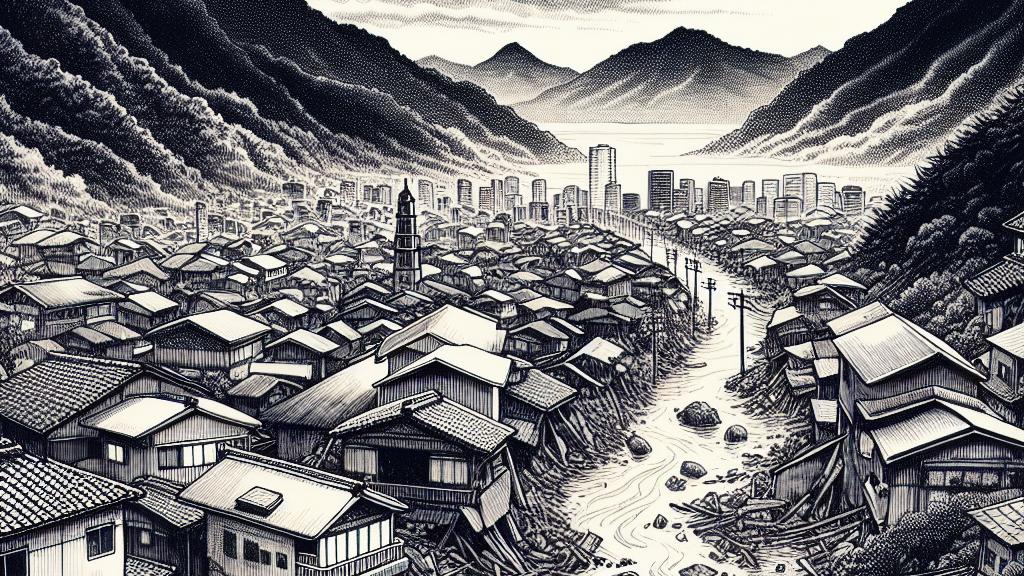Reduction of Polling Places and Voting Hours in Ishikawa's Wajima and Suzu Cities for the House of Representatives Election
Overview
- Significant cuts in polling places in Wajima and Suzu city are attributed to devastating recent natural disasters.
- Voting hours have been shortened to ensure voter safety and accommodate challenging travel conditions.
- Local officials are actively promoting early voting, emphasizing its critical importance amid the uncertainty surrounding election day.

Devastating Impact of Natural Disasters
In the picturesque Ishikawa region of Japan, the cities of Wajima and Suzu are currently reeling from the impact of the catastrophic Noto Peninsula earthquake, coupled with unprecedented and damaging rainfall. These disasters have forced officials to make difficult decisions regarding the upcoming House of Representatives election. For instance, Wajima has reduced its polling locations from over 20 in the previous election to only 18 this time around. This decrease is not just a statistic; it represents a tangible challenge to community participation and civil engagement. Streets that once bustled with eager voters are now silent, as safety concerns hinder access and pose serious risks.
Vital Adjustments to Polling Procedures
The adjustments to polling procedures extend beyond mere logistics; they underscore a meaningful commitment to ensuring voter safety. In Wajima, the election officials have determined that polling hours must be shortened significantly. For example, key polling places like the Nanaura Community Center now operate for a mere 8 hours instead of their usual lengthy schedule of 12 to 13 hours. This adjustment ripples through the community, impacting both turnout and accessibility. Similarly, in Suzu, the number of polling stations has been slashed from 19 to just 10, a move that aims to consolidate resources while addressing safety concerns. With ongoing roadblocks and potential aftershocks, the need for these adjustments is evident and urgent.
Strong Urgency to Promote Early Voting
In light of these changes, Wajima's officials are not just urging residents to vote; they are passionately advocating for early voting as a safe and viable alternative. This proactive approach aims to alleviate the burden of uncertainty on election day itself. By encouraging early voting, officials stress the significance of civic engagement and participation in democracy, even amidst challenges. They recognize that while reduced hours and fewer polling locations pose difficulties, keeping community members involved in the electoral process is paramount. In a time when participation is crucial, these efforts represent a rallying call for safety, democracy, and community resilience.

Loading...